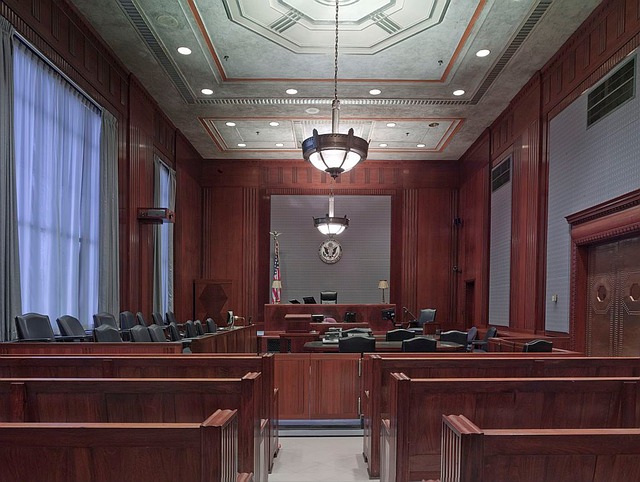Securities class actions and defamation cases address different legal issues, with outcomes varying widely based on evidence and corporate cooperation. Class actions focus on systemic company issues, aiming for collective redress, improved governance, and substantial monetary compensation for investors, often more impactful than individual defamation settlements. Skilled attorneys are vital in both scenarios, where successful outcomes depend on legal arguments and understanding the law. In class actions, settlements deter future misconduct, mandate governance changes, and provide financial restitution to affected parties, while defamation settlements may include public acknowledgments of wrongdoing, influencing corporate strategies.
“Unraveling the complexities of securities class actions, this article delves into the legal landscape surrounding these high-stakes battles. We explore two critical facets: understanding defamation case outcomes and examining settlement strategies in securities class action cases. By analyzing real-world scenarios and successful resolutions, we provide insights into how investors can navigate these legal processes. Discover the impact of strategic settlements on market trust and individual rights, especially in light of significant defamation case outcomes.”
- Understanding Securities Class Actions Lawsuits
- Defamation Case Outcomes: A Comprehensive Look
- Settlements in Class Action Securities Cases: Strategies & Impact
Understanding Securities Class Actions Lawsuits

Securities Class Actions lawsuits are a significant legal mechanism designed to protect investors from fraudulent or misleading conduct in the securities market. These cases aggregate claims from numerous investors, enabling them to seek redress collectively. Understanding Securities Class Actions involves grasping how they differ from individual lawsuits. While defamation cases focus on reputational harm, class actions target systemic issues within companies. The outcomes and settlements in these cases can vary widely based on factors like the strength of evidence and the company’s cooperation during the investigative and enforcement process.
This legal framework is crucial for maintaining fairness and accountability in financial markets, serving both corporate and individual clients. Unlike defamation cases that may linger in the political and philanthropic communities due to their public nature, securities class actions are driven by a thorough examination of all stages of the investigative and enforcement process. The results can be transformative, leading to improved corporate governance and substantial monetary compensation for affected investors.
Defamation Case Outcomes: A Comprehensive Look

Defamation case outcomes can vary greatly, from favorable settlements to unsuccessful trials. When it comes to securities class action suits, these cases often involve complex legal arguments and significant financial stakes. In many instances, settlement agreements become the preferred route, as they allow for a mutually agreeable resolution between plaintiffs and defendants, avoiding the time-consuming and costly nature of litigation. These settlements can result in substantial monetary compensations for affected individuals or entities, especially in high-stakes cases where the potential damages are immense.
Understanding successful defense strategies is crucial, particularly in securing winning challenging defense verdicts within general criminal defense scenarios. Skilled attorneys play a vital role in navigating these intricate cases, employing robust legal arguments and evidence to counter claims of defamation. The outcome often depends on the strength of both sides’ presentations, with juries or judges making decisions that can shape the future of companies and individuals alike. Effective communication and a deep understanding of the law are essential to achieving positive results, whether through settlement or trial.
Settlements in Class Action Securities Cases: Strategies & Impact

In securities class action cases, settlements play a pivotal role in resolving disputes and offering justice to affected investors. When a company or entity is found liable for misconduct involving their respective business, settlements can take various forms. One significant outcome is financial compensation, where defendants agree to pay damages to settle for his clients’ losses. This strategy not only provides restitution but also serves as a powerful deterrent in future cases.
The impact of these settlements extends beyond monetary gains. They often include additional terms aimed at preventing similar wrongdoings, such as improved corporate governance measures and disclosure policies. In the context of defamation cases within securities litigation, settlements can lead to public acknowledgments of wrongdoing, shaping the defendant’s public image and potentially influencing their future business decisions. This strategic approach ensures that not only individual clients are protected but also fosters a culture of accountability in the corporate landscape.
Securities class actions, driven by significant defamation case outcomes and guided by strategic settlements, have evolved into powerful tools for holding corporations accountable. By understanding the intricacies of these lawsuits, from their legal foundations to the impact of resolutions, investors can navigate this complex landscape with greater awareness. Both defamation case outcomes and settlements play pivotal roles in shaping investor protections and fostering transparency, ensuring that wrongdoings in the securities realm are addressed effectively.






